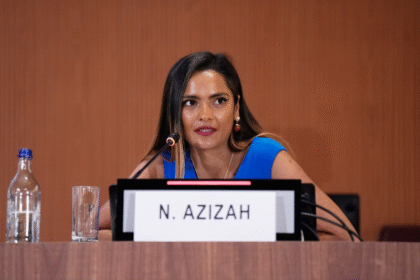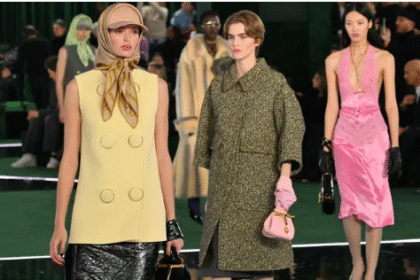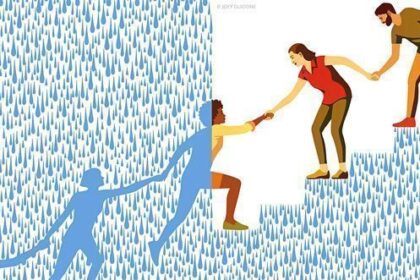Ten copies of Fifty Shades of Grey. Five copies of The Subtle Art of Not Giving a F*ck. And several dozen copies of the latest fantasy release are almost always the unwelcome sight in any major bookshop in the country. Entering a bookshop in Pakistan is a visceral experience because, at first, there is potential. This potential is dangerous because it gives hope — hope of a space that is diverse and curious. But then the experience falls apart the longer you spend time walking amongst the rows of neatly stacked books. And you realise: this place might as well not be a bookshop.
My own experience with bookshops in Pakistan has been nothing short of dramatic. Liberty Books is one of the nation’s leading bookshops, but it always leaves a gaping literary void for those looking for more than just the trendy read of the month. Walking into one of these establishments is exciting but also bitter. The bright red colours and the aspirational quotes in funky fonts all seem to promise a bookshop with substance and vigour. But one look at the main display and you come to the disappointing reality that this is not a space for readers. This is a space for buyers. And the store desperately wants you to buy based on what’s popular.
Consumerism, thoughtless curation, and inflated prices are not exclusive to any one bookshop in the country. As a nation that has found distant refuge from any sort of healthy reading habits, it is important to take a look at how the country’s bookshops are trying to sell books. What types of books are placed in elaborate display cases? Which books are being promoted on posters and websites? I don’t blame a bookshop for trying to sell the latest release — even if it does become endlessly annoying to see the same book across the country’s literary landscape. I think that as a reader, I’d rather take a more sombre view of the bookshops in Pakistan because they are an endangered species. Finding a bookshop with more than just several copies of Mein Kampf and workbooks for O Level exam preparations is truly a blessing. Most of the popular bookshops in the country are not beyond saving.
However, that ever-present gaping void engulfs the hopes and dreams of anyone looking to find something thoughtful, fresh, and unique within a Pakistani bookshop. Most of the books in some of the largest establishments in the country are far removed from the average citizen. One can’t help but ask: Who are these books waiting for? Why have they been lined up so perfectly to be gazed upon? When reality sets in, you realise that more than half of these texts are overpriced and detached from any relatable context.
The average Pakistani citizen gains nothing from Elon Musk’s biography. Rich Dad Poor Dad is not the word of God that will instantly turn someone into a millionaire. The Secret is nothing more than a trap for the gullible. These are just a few examples of the hollow texts that continue to pervade the nation’s bookshops.
Add in the atrocious prices and the exclusionary aesthetic of the bookshops themselves, and you end up with a nation that does not care about reading — and bookshops that are still waiting for their perfect customer. Some establishments even feel the need to cover the books in plastic wrap so they cannot be read. Imagine my surprise when I visited Saeed Book Bank, the largest bookshop in Pakistan, and I was left unnerved by the plastic covers on the books. Like they were showpieces meant only to serve as symbols of an intellectual mind. Not being able to browse through a book felt like an unreachable itch. And I couldn’t help but wonder if I was really standing in a bookshop — or a surreal showroom where everyone was only pretending to be interested in books. A sick facade that was completely removed from what it means to be a reader in a bookshop.
Regardless of some of the worst offenders in Pakistan’s shallow world of bookshops, there are establishments like The Last Word who make an effort to curate books that are inclusive of a diverse range of topics and genres. In a perfect world, every bookshop in Pakistan would be similar to The Last Word — a space where books are seen as grand totems of knowledge and sacred information. Where artists, comic enthusiasts, designers, architects, historians, and lovers of food can find books that speak to them.
But even this structure has its own apparent flaws because The Last Word exists in a vacuum. It is a heavily curated space with equally heavy prices — and the common man is not part of that audience. The bookshop has even faced numerous issues with keeping itself alive. Because thoughtful curation in a country like Pakistan is an immense task.
I believe that the underlying issue for this rot in our bookshops is the lack of incentive. People already have a hard time picking up a book — and they don’t want to spend more time thinking about which book to read. Bookshops presenting a neat line-up of the most overrated, overpriced books is a perfect strategy to draw in people who are overwhelmed by reading.
However, a more detailed look into the matter — and the entire structure falls apart. Because you realise that as a nation, we do not have native reading habits and trends. We make no effort to form our own reading identity. We are left at the mercy of the New York Times bestseller list.
















